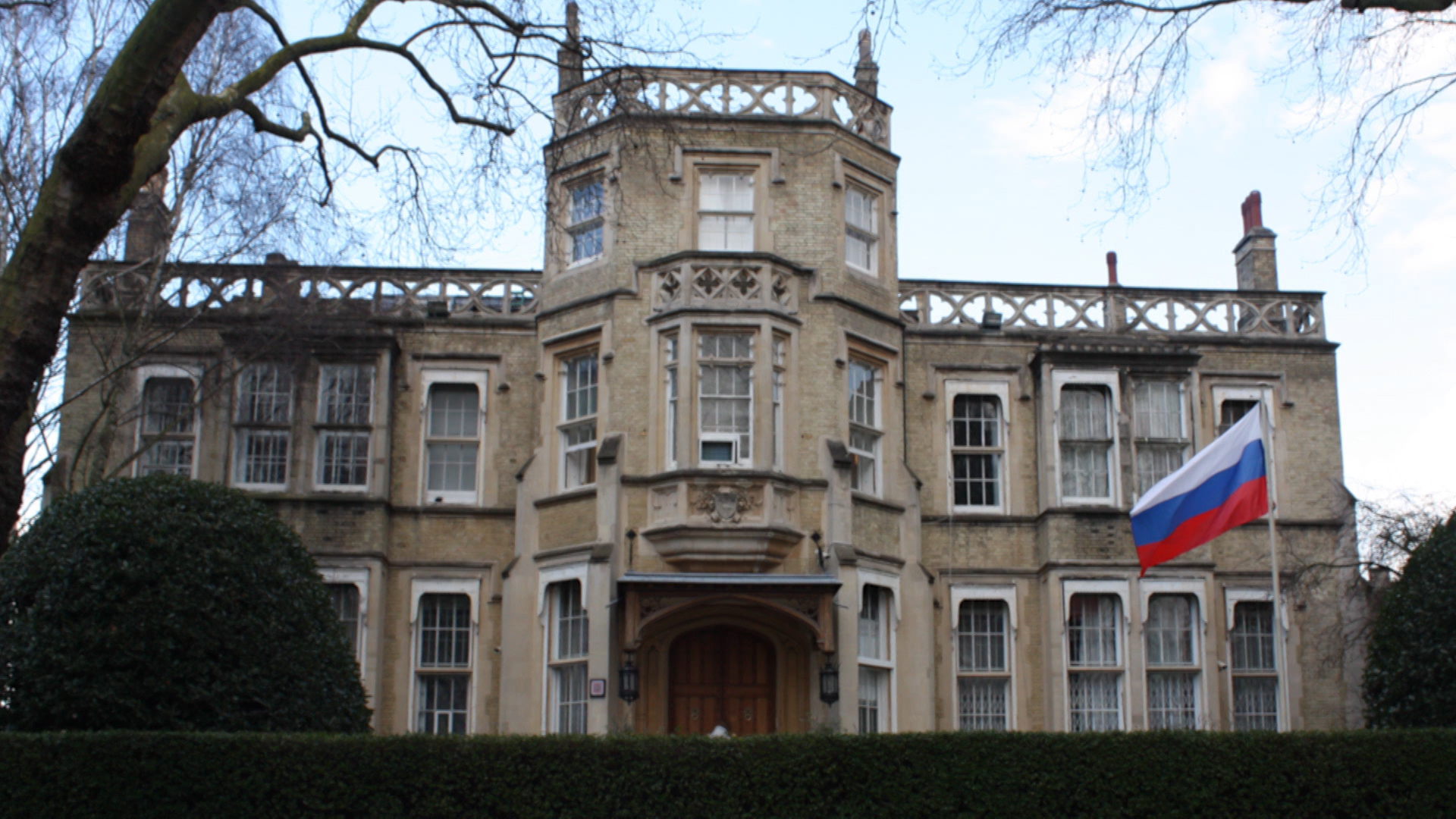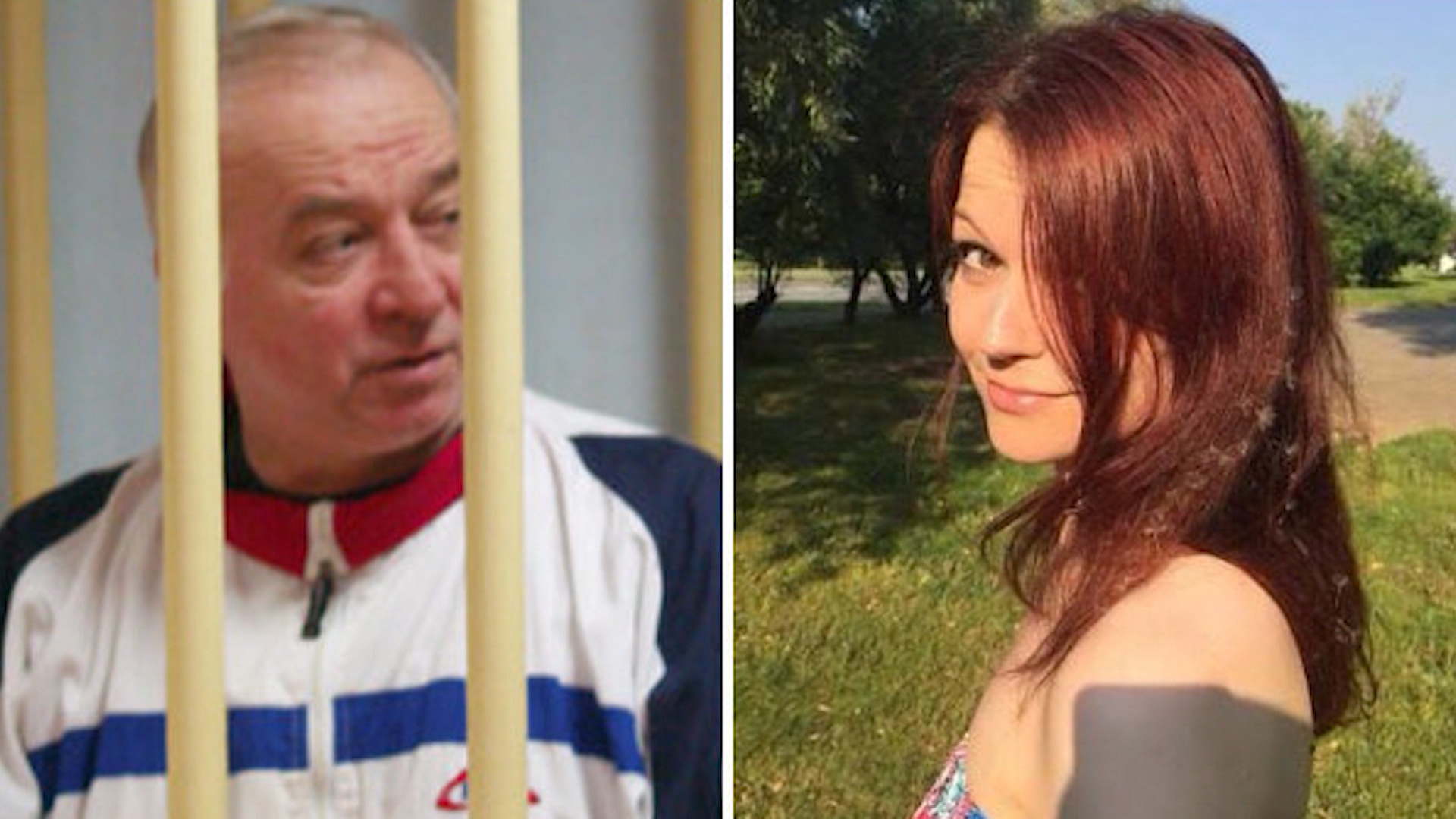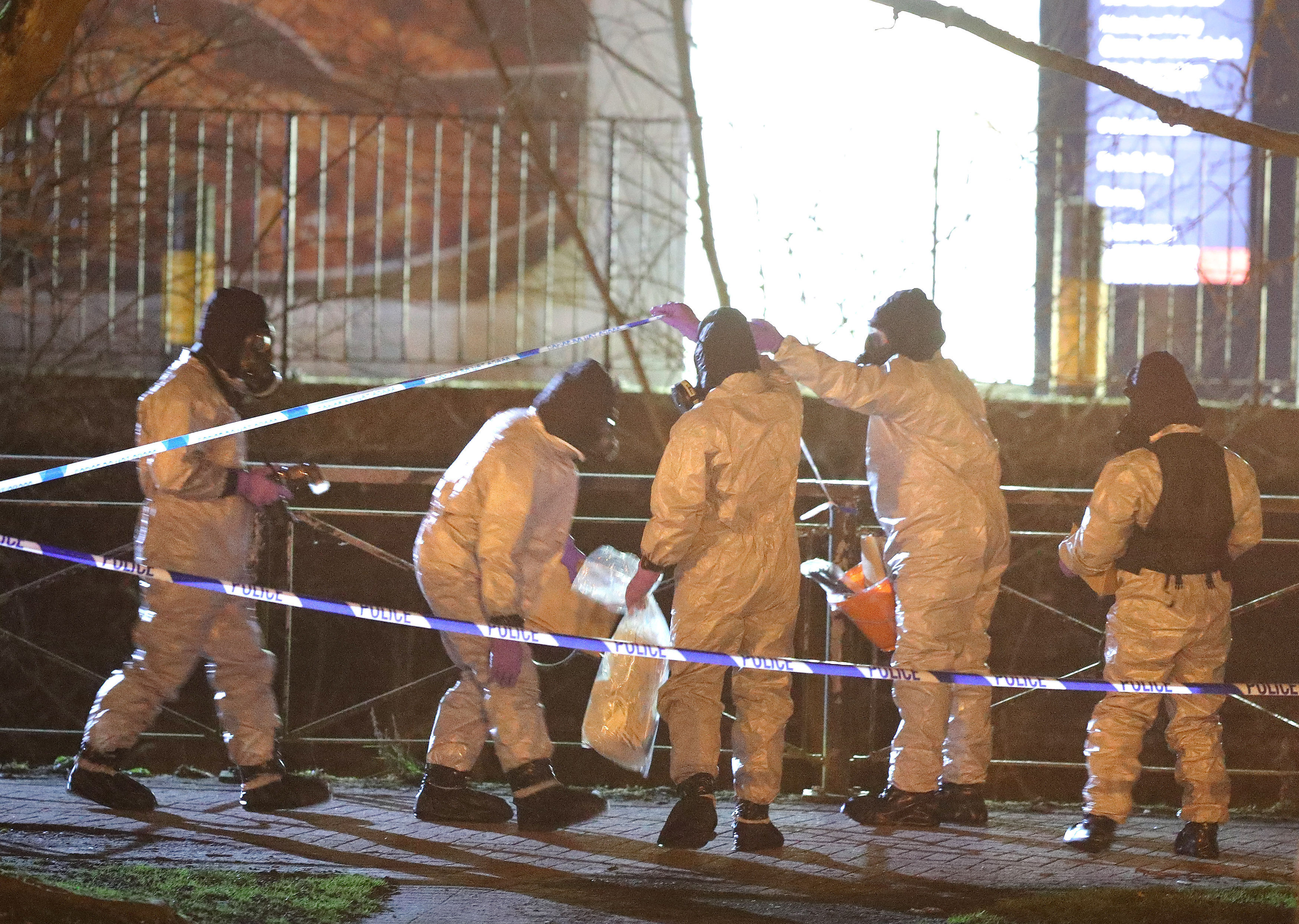
'Unusual' Activity At Russian Embassy Around Days Of Novichok Poisoning

Intelligence services investigated "increased" and "unusual" activity at the Russian embassy in London, days before and after the Salisbury nerve agent attack, according to the Press Association.
MI5, MI6 and GCHQ looked into "frantic coming and goings" at the building in the days leading up to the poisoning of former Russian spy Sergei Skripal and his daughter Yulia, according to a source.
In the wake of the attack, which happened a year ago on Monday, the observations were "deemed to be significant and of interest", it is understood.

A security source told the Press Association: "The intelligence agencies have been investigating unusual and increased activity at the Russian embassy in Kensington in the days leading up to and after the attack on the Skripals."
The source, who has knowledge of the investigation, said lines of inquiry included looking at movements which were described as "frantic and unprecedented" and were observed at the time.
The source added: "As would be expected, the UK security services have eyes on known and undeclared foreign intelligence operatives."
Britain has accused Russia of being behind the attack.
Intelligence services continue to believe it was ordered at "the highest level in the Russian state", the source said.
Two weeks after the attack, Prime Minister Theresa May expelled 23 Russian diplomats which she described as "undeclared intelligence officers".
It was the largest mass expulsion of diplomats since the Cold War.
Both Mrs May and Home Secretary Sajid Javid claimed the Russian government had been involved, saying approval came from a senior level in Moscow.
It is understood several Russians are being investigated over the attack.
In September last year, two Russian nationals were named as suspects of the Salisbury nerve agent attack. Both men said they were innocent and were in the city to visit the cathedral.
Scotland Yard and the Crown Prosecution Service said there was enough evidence to charge the pair, known by their aliases Alexander Petrov and Ruslan Boshirov, with offences.
Russia has repeatedly denied any involvement with Mr Putin claiming the two suspects were civilians.
Detectives believe the Skripals first came into contact with the nerve agent when it was sprayed on the door handle of their home in Christie Miller Road, Salisbury.
Mr Skripal, 66, and his 33-year-old daughter survived the attack, as did Wiltshire Police Detective Sergeant Nick Bailey, who came into contact with the poison when he searched their home.
Months after the incident, 44-year-old Dawn Sturgess died after coming into contact with the perfume bottle that was believed to be carrying the substance.
The Home Office and the Foreign and Commonwealth Office both declined to comment.
Neither the Russian Embassy nor GCHQ responded when contacted.

The decontamination of the city took nearly a year with specialist military teams spent 13,000 hours cleaning 12 sites.
An estimated 600-800 specially trained military personnel, including the Joint Chemical, Biological, Radiological and Nuclear Task Force, were involved in the clean-up, named 'Operation Morlop'.
Last week, it was confirmed that the decontamination of the city was "completed".









